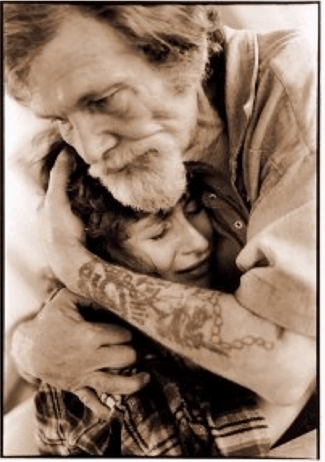 The practice of forgiveness is not simply a one-time action or an isolated feeling or thought. Forgiveness involves us in a whole way of life that is shaped by an ever-deepening friendship with God and with other people. The central goal of this practice is to reconcile, to restore communion – with God, with one another, and with the whole creation. Forgiveness works through our ongoing willingness to give up certain claims against one another, to give the truth when we access our relationships with one another, and to give gifts of ourselves by making innovative gestures that offer a future not bound by the past. Forgiveness does not merely refer backward to the absolution of guilt; it also looks forward to the restoration of community. Forgiveness plays a part in breaking cycles of violence and abuse in our families and our communities. Practising forgiveness as a way of life is one way to purge ourselves of easy hatred. There is even danger in the highly prized Christian emotion of “righteous indignation.” Forgiveness begins with God’s love. We learn about the shape of God’s forgiveness through the parables of the lost coin, the lost sons, and the lost sheep (Luke 15). Regular liturgical practices and prayers of confession, the kiss of peace, washing feet, baptism, and assurances of pardon all contribute to creating a climate of forgiveness and making it habitual. We need to unlearn those things that divide and destroy communion, and instead learn to live as forgiven and forgiving people.
The practice of forgiveness is not simply a one-time action or an isolated feeling or thought. Forgiveness involves us in a whole way of life that is shaped by an ever-deepening friendship with God and with other people. The central goal of this practice is to reconcile, to restore communion – with God, with one another, and with the whole creation. Forgiveness works through our ongoing willingness to give up certain claims against one another, to give the truth when we access our relationships with one another, and to give gifts of ourselves by making innovative gestures that offer a future not bound by the past. Forgiveness does not merely refer backward to the absolution of guilt; it also looks forward to the restoration of community. Forgiveness plays a part in breaking cycles of violence and abuse in our families and our communities. Practising forgiveness as a way of life is one way to purge ourselves of easy hatred. There is even danger in the highly prized Christian emotion of “righteous indignation.” Forgiveness begins with God’s love. We learn about the shape of God’s forgiveness through the parables of the lost coin, the lost sons, and the lost sheep (Luke 15). Regular liturgical practices and prayers of confession, the kiss of peace, washing feet, baptism, and assurances of pardon all contribute to creating a climate of forgiveness and making it habitual. We need to unlearn those things that divide and destroy communion, and instead learn to live as forgiven and forgiving people.
For further suggestions, see this article from the Valparaiso Project